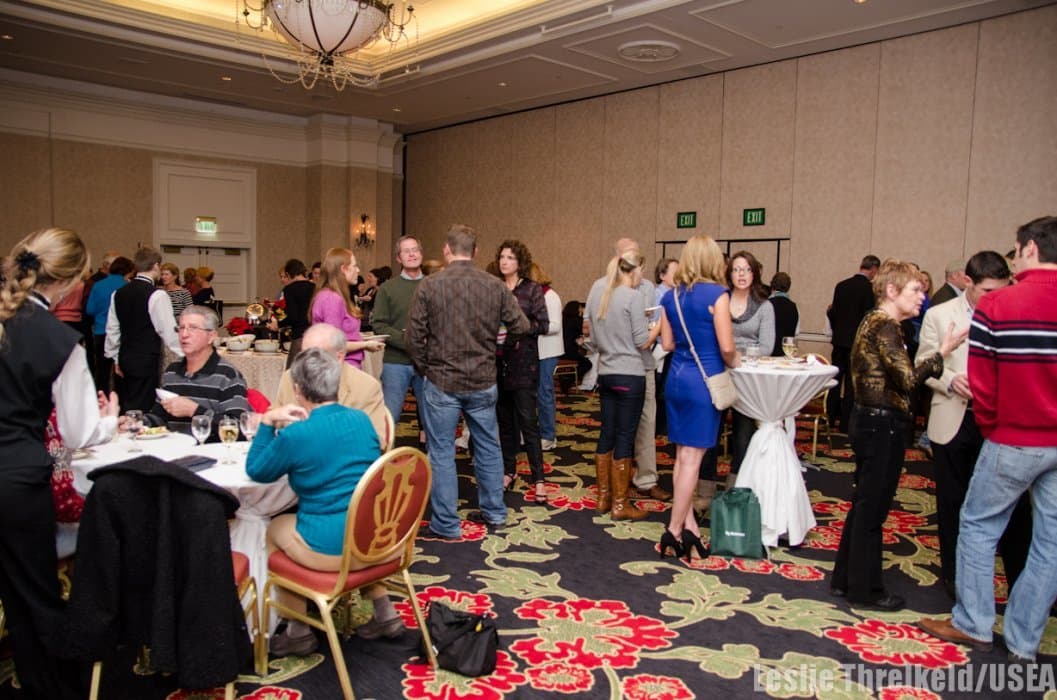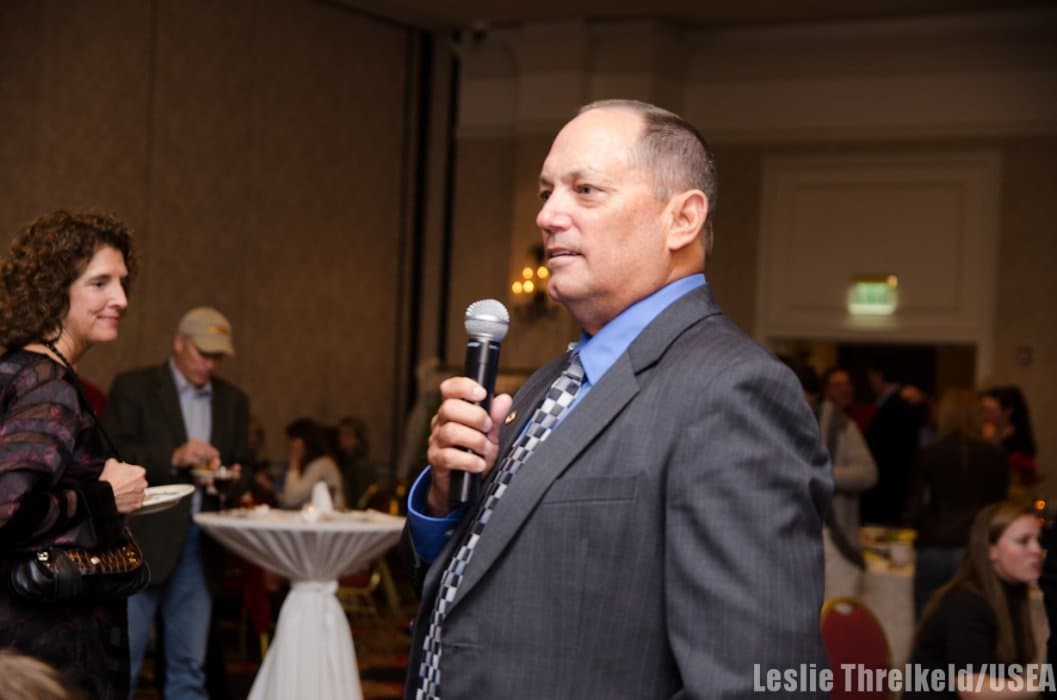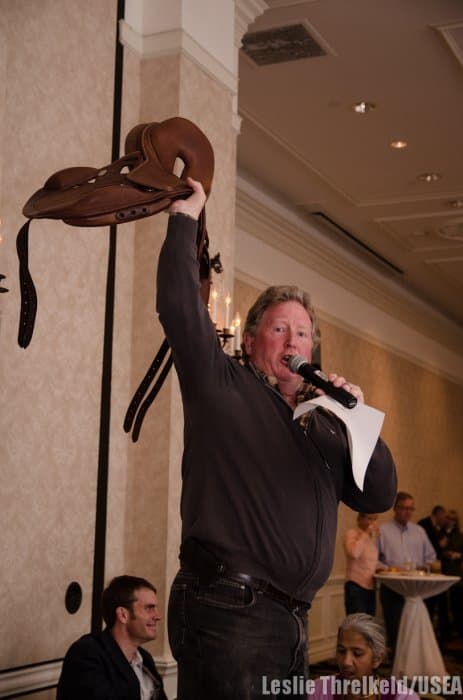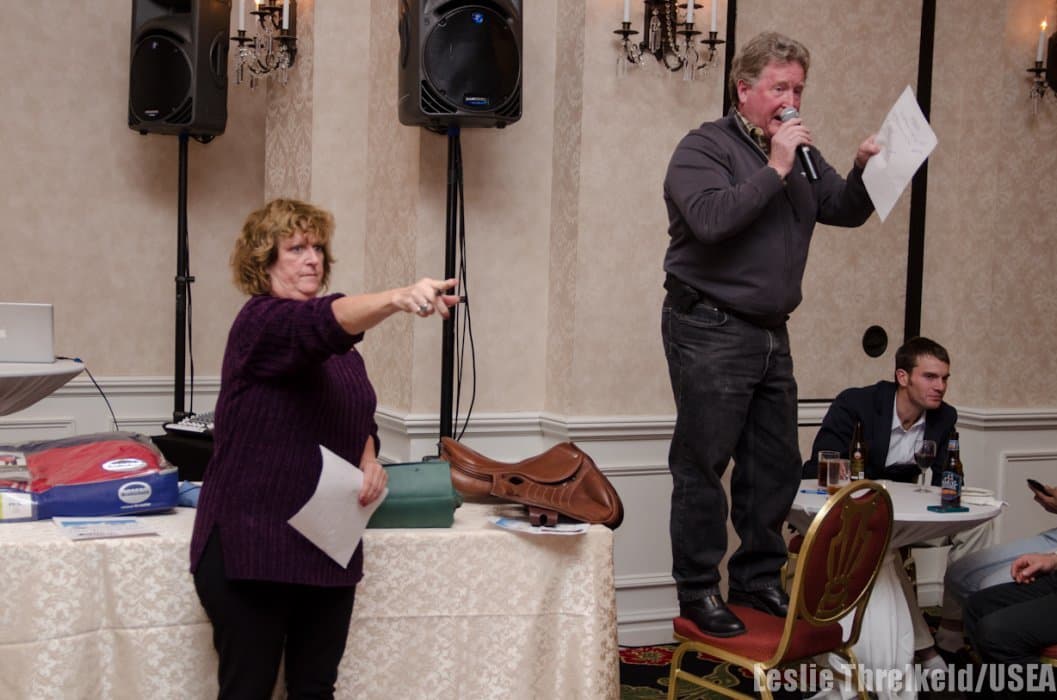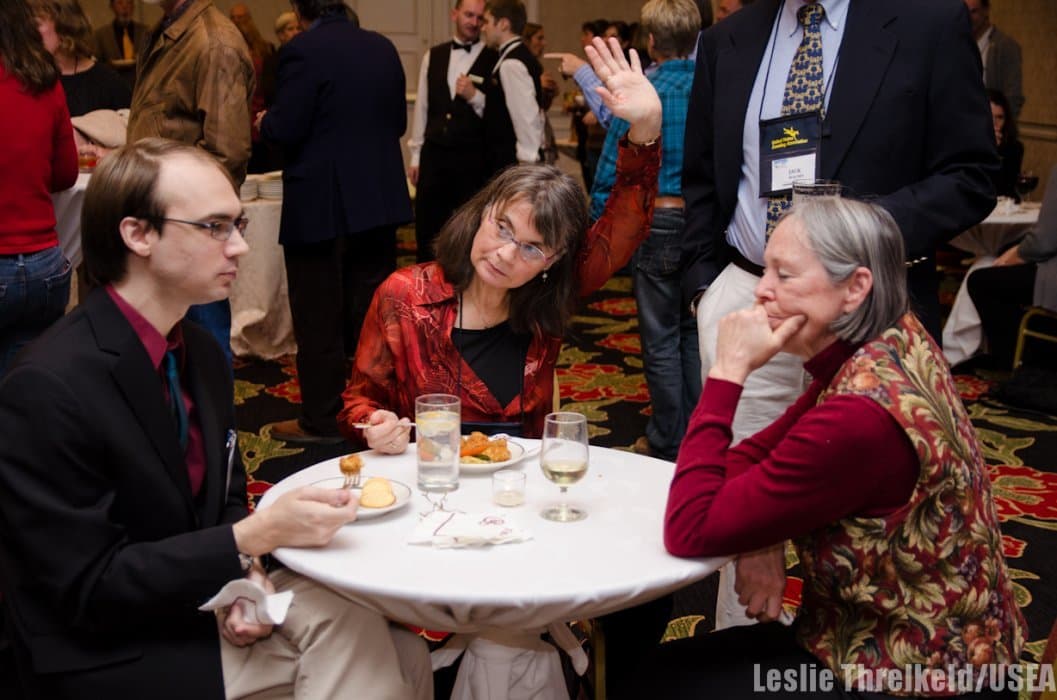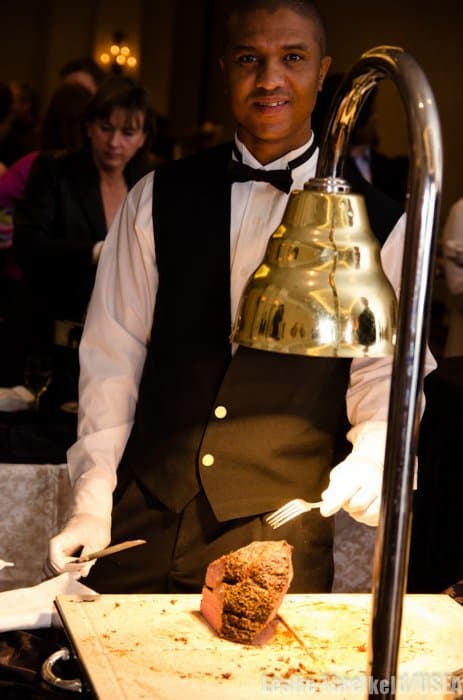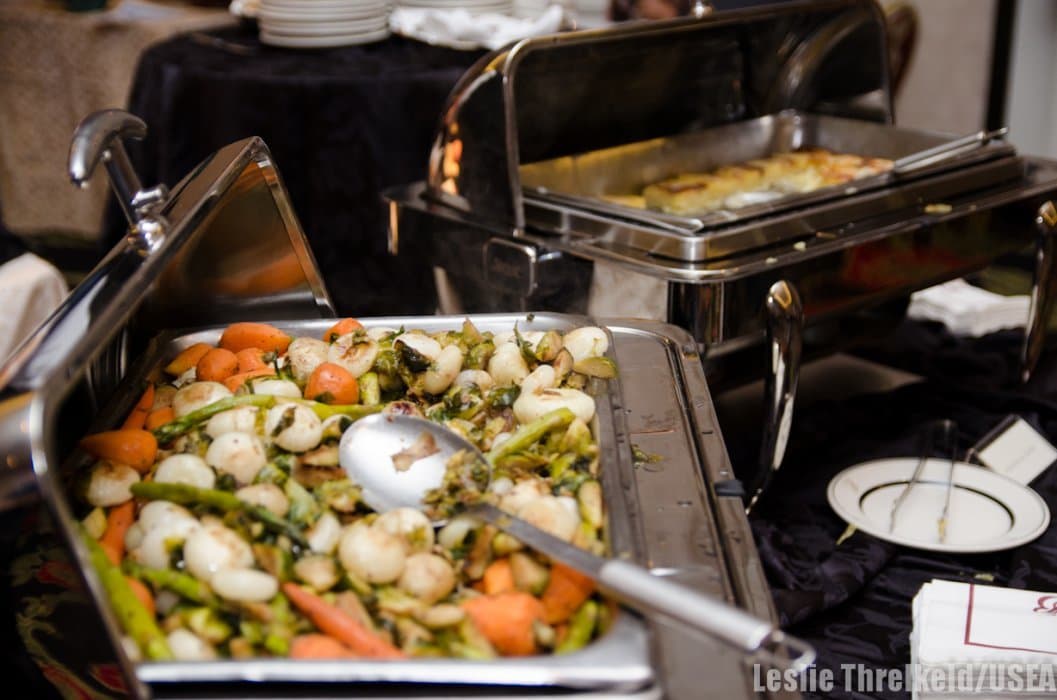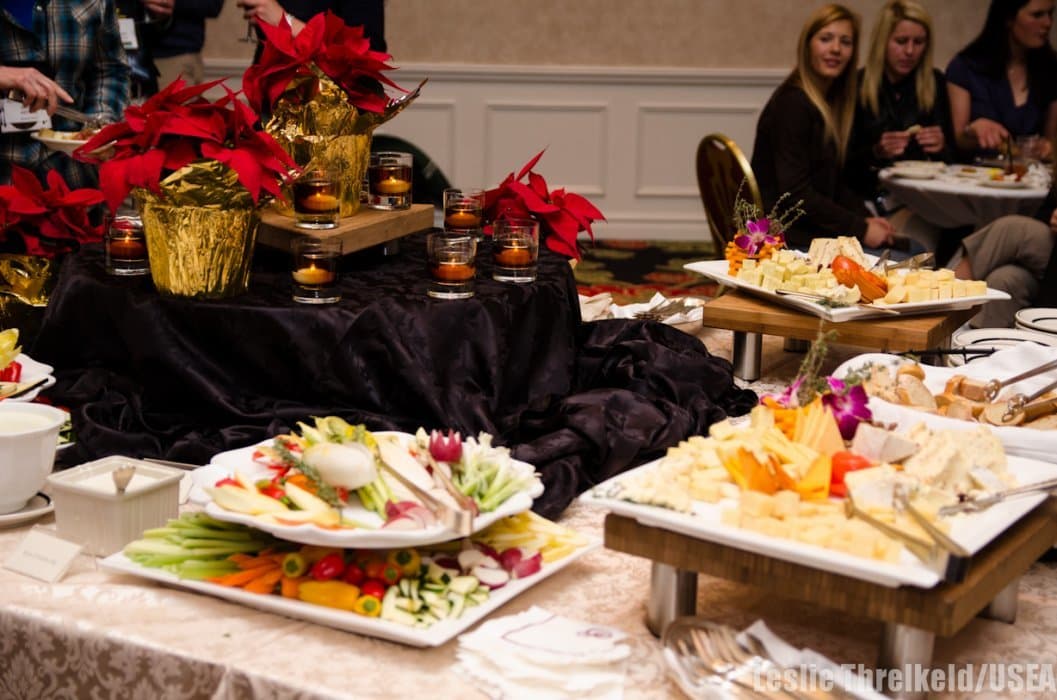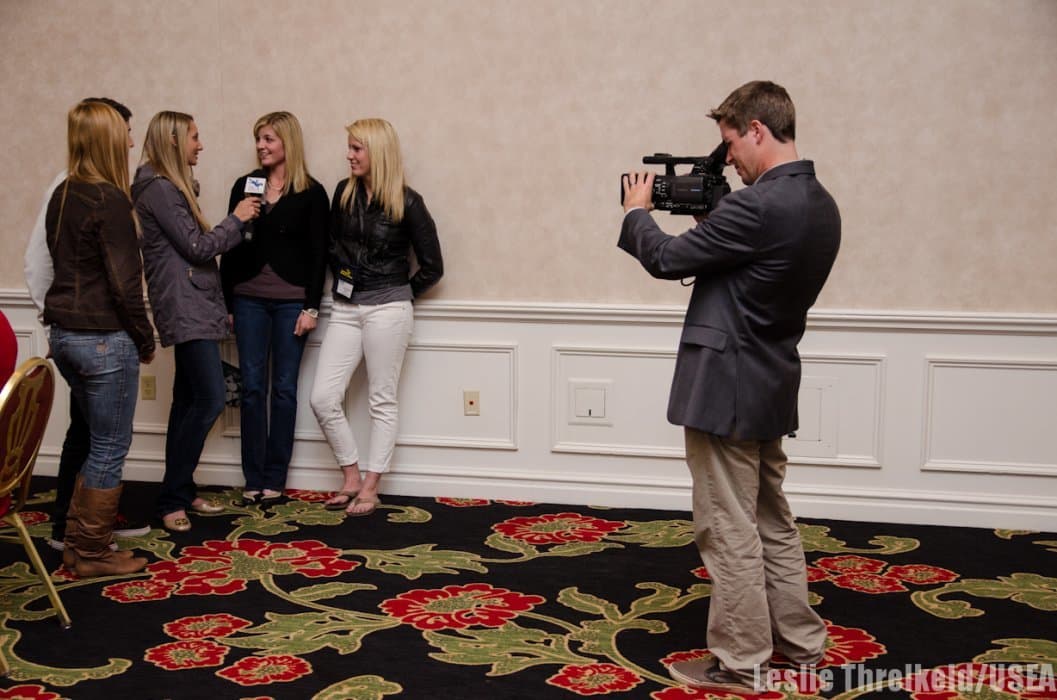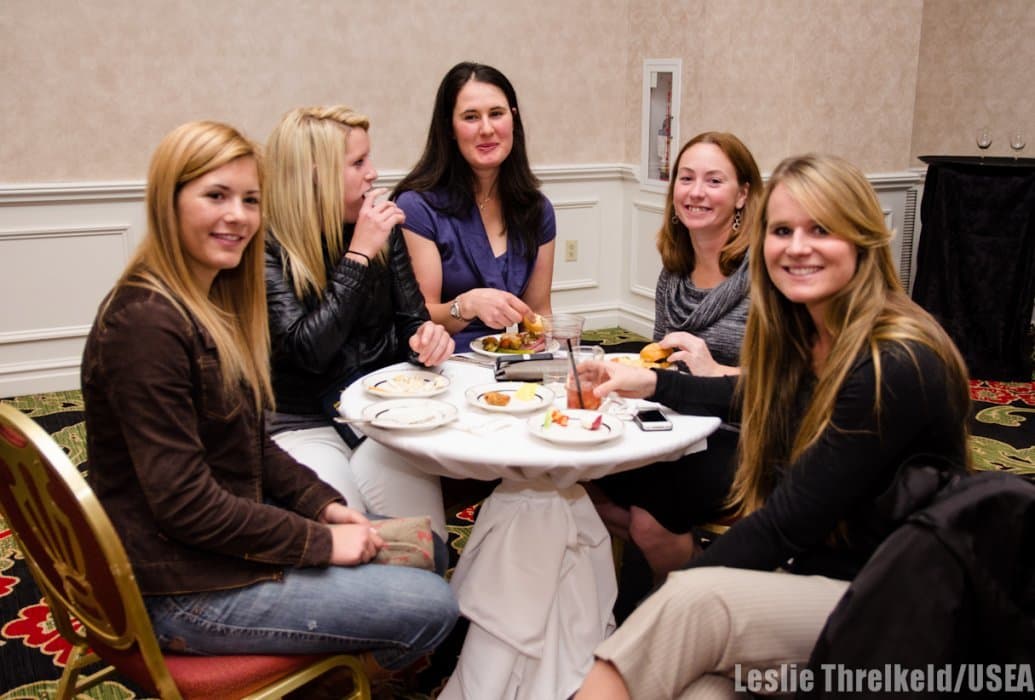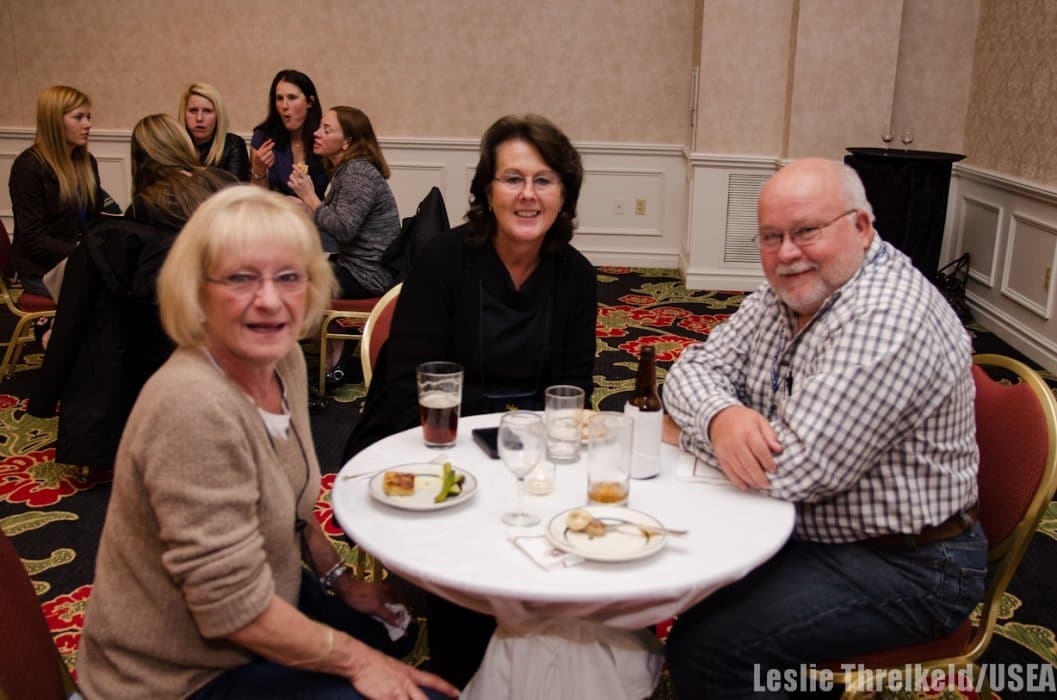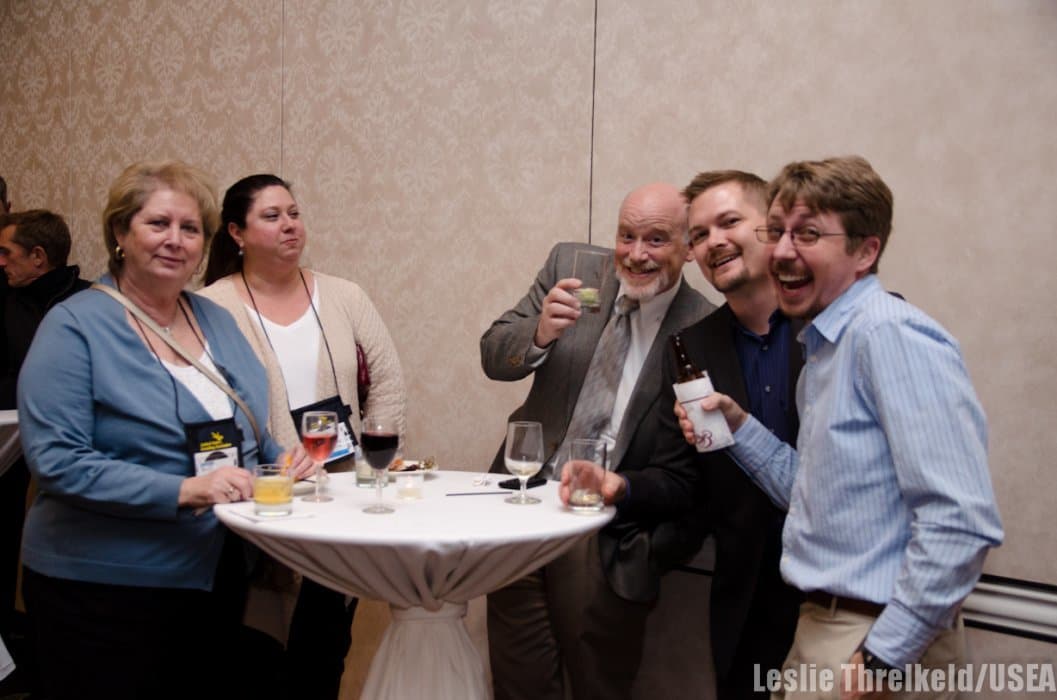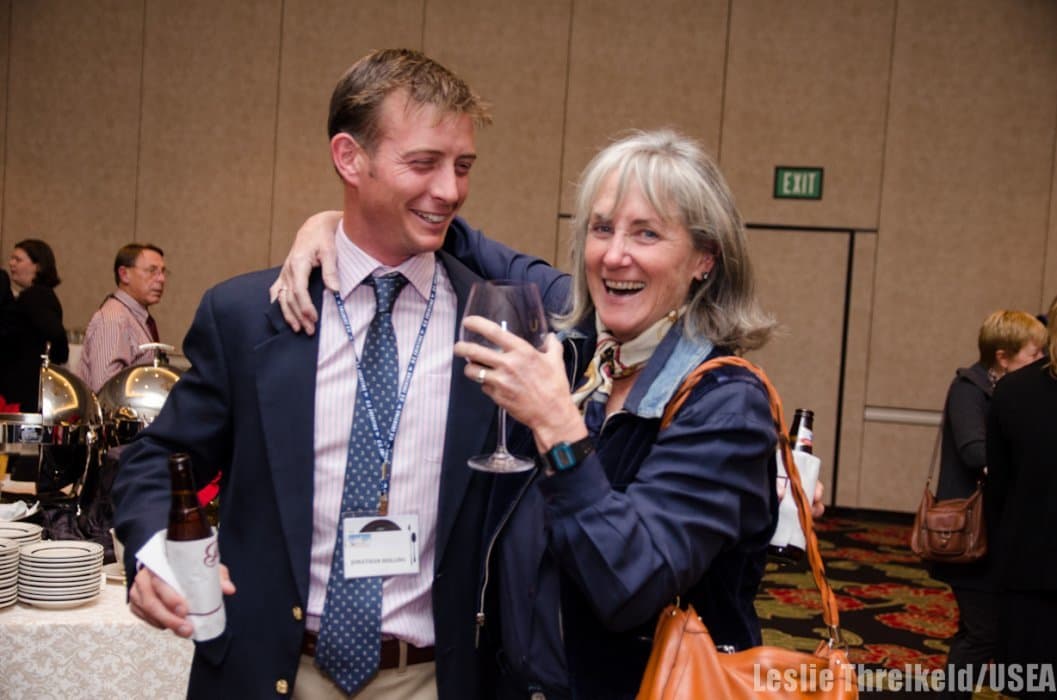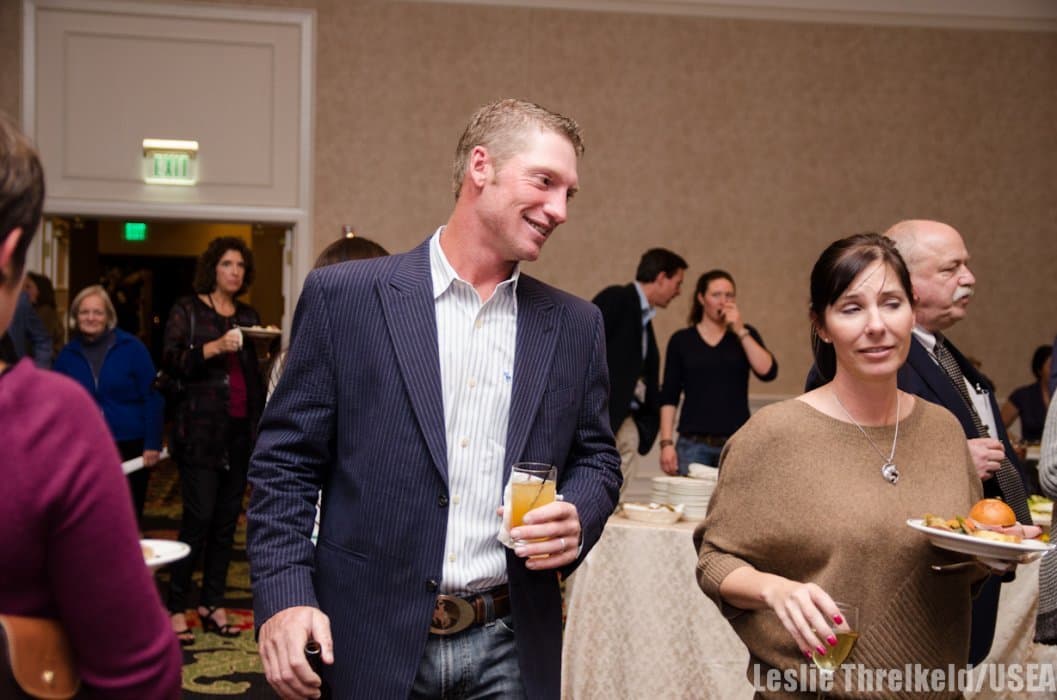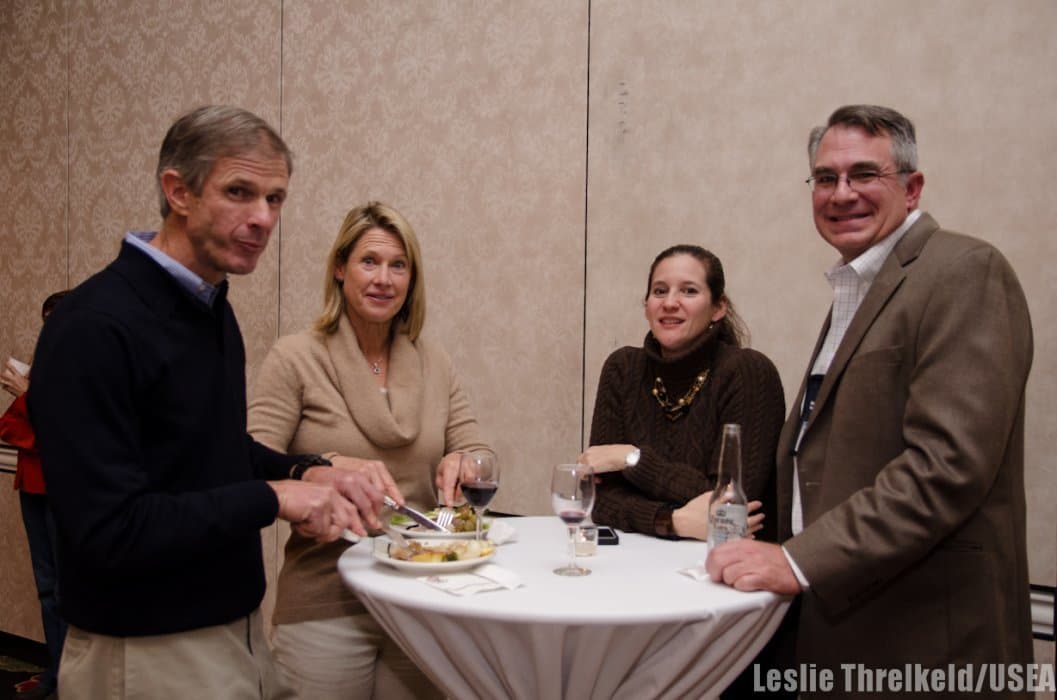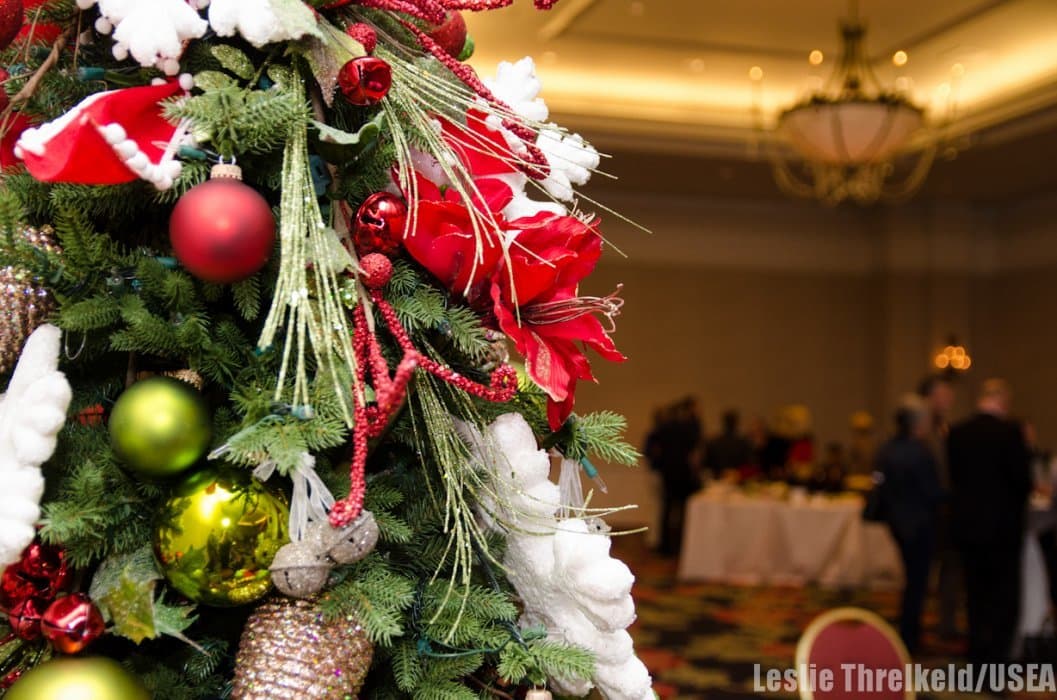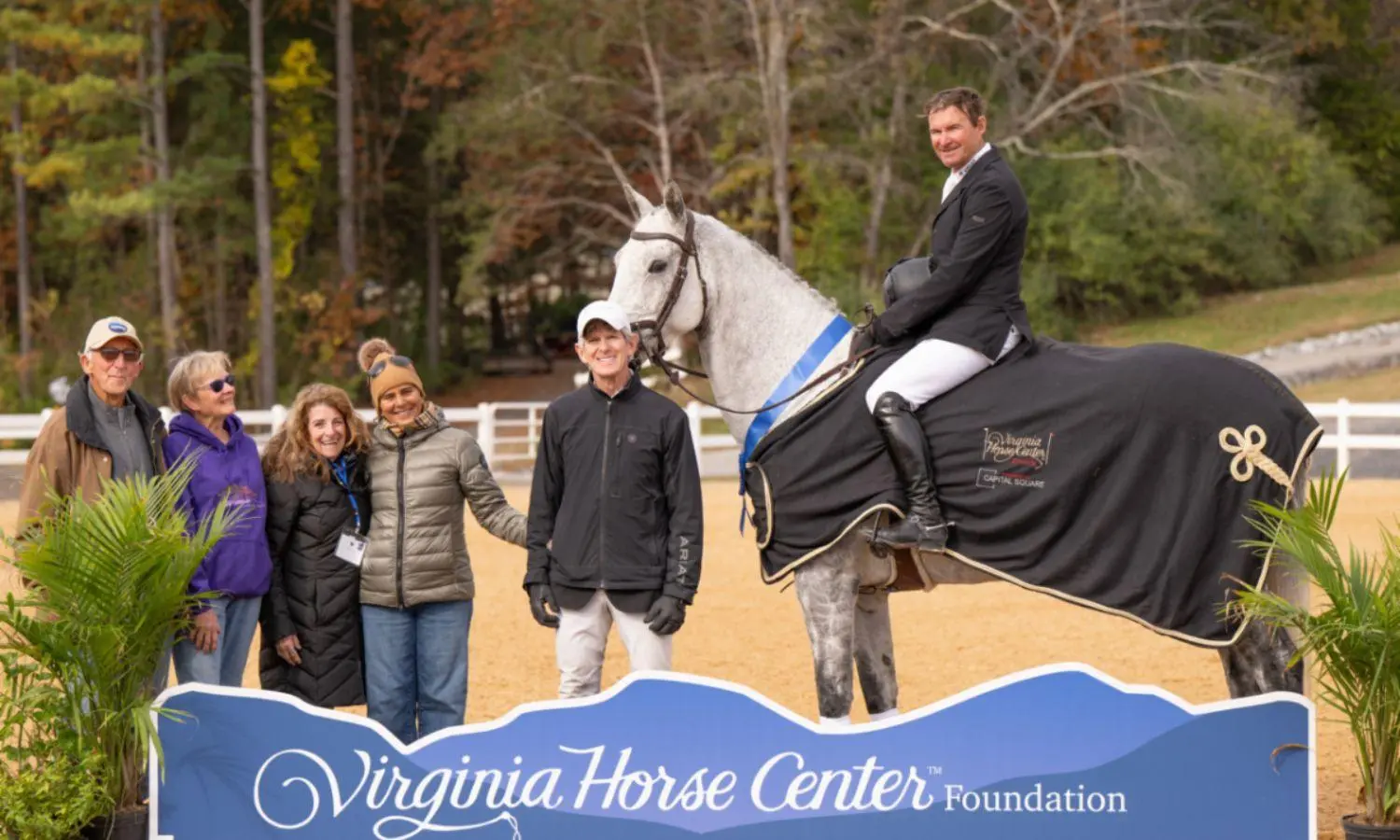USEA Annual Meeting and Convention Day Three Review
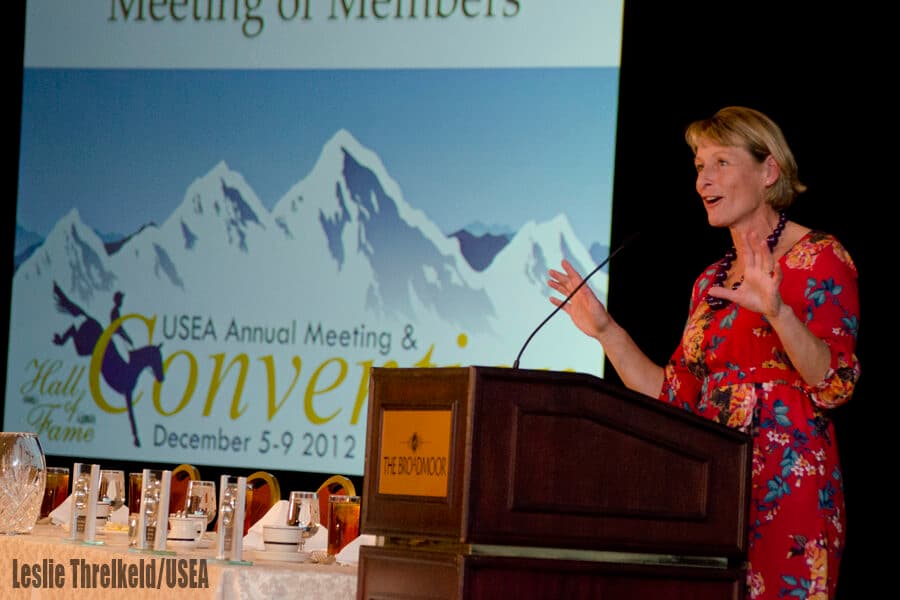
The USEA Annual Meeting featuring keynote speaker, Mary King, was the highlight of today’s activities at the Convention at the beautiful Broadmoor Hotel in Colorado Springs, CO. Mary gave an inspirational speech on her pathway through her career including insights on sponsorship and competing at the Olympic Games this summer. Following her speech, USEA President, Brian Sabo, recapped the year in the Association and was followed by reports from other Board members that the USEA is in a very healthy place. The meeting ended with the election of the 2013 Board of Governors and USEA Endowment Trustees.
Young Rider Open Forum
The early morning Young Riders Open Forum drew a small but dedicated audience, including USEF President –elect Chrystine Tauber who expressed her interest in the Young Rider Program. Young Rider co-chair Tim Murray gave a recap on the new Advancing Athletes program that was spearheaded by Diane Snow and then was enveloped in with David O’Connor’s new plan for the U-25 and U-18 lists.
He then reminded everyone that the Adequan FEI North American Junior Young Rider Championships will be held once again at the Kentucky Horse Park from July 17-21.
Diane Pitts spoke for a few minutes about the Young Rider Mentorship Program which is a great way for eventers to get involved behind the scenes at the event by shadowing officials, TDs, course-designers, veterinarians, etc.
NAJYRC veterans, Lizzie Snow and Kendyl Tracy, then took the podium to talk a little bit about their numerous Young Rider experiences and their thoughts on how the Championships have changed over the years that they have participated. They both agreed that the experience of riding on a team is awesome – there may be more pressure, but there is more support from your team as well. Other advice they had for Young Rider hopefuls included: fitness is very important, enjoy the journey to the championships even if you don’t qualify there are plenty of other opportunities to get involved.
The Young Rider Open Forum concluded with a discussion of having a Young Rider Social and Educational program at the Rolex Kentucky CCI4* this spring.
USEA Open Forum
The USEA Open Forum gives the chance for every USEA member to have their voice heard on any topic related to eventing. USEA President, Brian Sabo, opened up the forum by thanking all of the USEF staff for joining us this year and reminding everyone that the rules belong to the USEF! He then went on to explain the emphasis the USEA puts on Education and that wherever you are on that ladder, we are going to support you and meet you at that level. Other topics that Brian covered included the importance of the Training Program for Licensed Officials, Safety, the possibility of a redrawing of the Area boundaries, reminder that some programs are only in their inception and it will take time for them to grow, and the importance of volunteerism.
When the forum was opened up for the audience to speak, the focus remained on volunteerism for a long time as Brian said, “volunteerism is going to emerge as the biggest problem we face. It is the water of eventing.” Many ideas were thrown around on how to get more people to volunteer and interested in the sport. The continued theme was the importance of thanking your volunteers, organizers, secretaries, and sponsors. David O’Connor also stepped in with the encouragement of the mentorship part of volunteering.
The USEA Open Forum then flowed right into the Round Table Discussion “It Takes A Sport.” This discussion was led by Board of Governors member, Peter Gray, who talked about the culture of eventing and how if you are going to be the very best you need to be a bit selfish and ride, ride, ride.
An interesting part of the Discussion was a five minute interview that Chris Stafford had previously recorded with Olympic Gold Medalist, World Champion, and European Champion, Michael Jung. Tidbits from his interview include: He is mentored by his father, Thoroughbred horses are his favorite, he does train with outside coaches for dressage and show jumping, he doesn’t teach, clinic, or do sales – only rides and trains, he likes to buy quality four and five-year-olds and produce them himself, he breaks them at three, he has about 25 horses all owned by sponsors or owners, and his biggest motivation is winning.
David followed up on Michael’s interview with his response that is beatable and we will be doing everything our system to do that. He has set the standard. He is a fantastic thing for our sport – drives you to the next level.
David segued that conversation into a focus on breeding and the importance of the mare line. Germany is breeding with American Thoroughbreds and we need to do the same.
Adult Rider Open Forum
At the start of the Adult Rider Open Forum, Adult Rider Chair Cindy DePorter introduced the program and explained its purpose. Representatives from each Area then stood and gave a brief report about the status of its Area. All ten Areas except for two had a representative present. Below are key updates from each Area:
Area I – The $1,000 Le Samurai grant, started by Becky Broussard to provide Areas with money for educational purposes, was given to GMHA for educational purposes this year.
Area II – The Area II coordinator,
Area II – An Adult Rider Clinic is hosted in Florida each year where participants stay for a week to train with a professional and then compete in an event at the same location. Instructors have included Ian Stark, Lucinda Green, and Leslie Law.
Area IV – It is small in numbers, but huge geographically, which can create challenges to keep the Adult Riders active as a program. This year they hosted a successful New to Eventing Clinic for the first time.
Area V – A silent auction is their main fundraiser, and this year they doubled their money.
Area VII – They make a calendar to raise funds and companies can purchase ad space in it. The Area places a big emphasis on volunteering which they turn into hours for a $1,000 educational certificate raffle at the end of the year.
Area IX – They only have three or four months in their eventing season, so they try to cram a lot into the schedule. This year they were able to award educational certificates.
Area X – It is a small Area with good Adult Riders numbers considering. The clinics are always discounted to Adult Riders.
After “business” had concluded, the attendees of the Adult Rider Open Forum were rewarded for getting up early enough for a 7:30 start time by welcoming the Convention’s Keynote Speaker and 2012 London Olympic team silver medalist Mary King for a Q&A session. Mary was charming and engaging, and answered every question with humor and honestly. It was educational and entertaining discussion. Afterwards, Mary kindly stood for photographs with the Area coordinators and interested individuals.
U.S. Eventing Team Reviews London 2012
Jim Wolf, Dougie Hannum, Karen O’Connor, Will Coleman, Phillip Dutton, and Captain Mark Phillips gathered in the Rocky Mountain Ballroom to review their London Olympic adventure. Captain Mark Phillips approached the podium and thanked his riders and the many other people who have been involved in his experience as the U.S. coach over the years. He bid a fond and emotional farewell before receiving a lengthy standing ovation: “I’ve had the honor and privilege to work with some great horses and great riders. It has been one hell of a journey.”
The audience did not have too many questions, but the riders obliged to answer the ones they were presented with with tact and truthfulness. After which the riders shared a collection of humorous stories of events unrelated to the competition that occurred while in London.
Jim Wolf, the USEF Executive Director of Sports Programs, closed the review by acknowledging the Captain once last time. “Thank you doesn’t seem to be enough,” he said.
Rule Change Open Forum
The Rule Change open forum was quick and relatively quiet this year. USEF Eventing Technical Committee Chair Malcolm Hook went over with the audience the key rule change proposals that will be carried forth to be voted upon by the USEF Safety and Technical Committees.
EV113.1b
Currently, there is no protocol to follow if a competitor falls between fences. A provision has been added to allow the ground jury to call a time out for a rider that has a fall not associated with penalties to be examined by medical personnel before continuing.
EV118.3F
It is not uncommon for a rider to make a protest, inquiry, or appeal well after the event has concluded or the window for inquiry has passed. Often times this is because the rider wants to get on the road before final results are posted. To address this, the window for inquiries is being extended from 30 minutes after the scores are posted to 3:00 p.m. the day following the last day of the competition. This is not for the purposes of changing the placing, but keeping an incorrect score from being reflected on the horse and rider’s records.
EV141.1a5
The intent of this proposal is to prepare riders at the Preliminary, Intermediate, and Advanced levels for competition at the FEI levels. The rule would be changed to reflect FEI rules. Currently, four refusals or disobediences on the entire cross-country course at all levels results in elimination. The change would make the third penalized disobedience on the entire course result in elimination for Preliminary, Intermediate, and Advanced. The number four for Training and below remains the same.
EV141.1b3-b4 (One fall and out)
The original proposal passed by the USEA Board over the summer was that at Beginner Novice through Training level, the first fall would equal 65 penalties and the second fall elimination. For Preliminary through Advanced one fall would still equal elimination. Through the course of the Convention, the proposal has been changed to most likely appease the USEF Safety Committee based on injury data. The current rule proposal reads: The first fall of competitor where they land on their feet with no apparent injury at Novice and Beginner Novice will equal 65 penalties. The second fall will result in elimination. The first fall of competitor for Training through Advanced levels equals elimination. It was clarified that competitors do not have to “stick the perfect landing” (although Malcolm joked that they should score a 9.8 or better to continue), but if they land on their feet and then fall on their bum, the jump judge can then radio the Technical Delegate to evaluate the situation before allowing the competitor to continue. Malcolm made clear that he still does not support repealing the one fall and out rule due to the unknowns regarding concussions and traumatic brain injury. However, the USEF Eventing Technical Committee disagreed with him as a majority, therefore he is going to attempt to shepherd it through the USEF Safety Committee. USEF members were reminded that they may still make comments to the federation about the rule change until the comment period closes.
